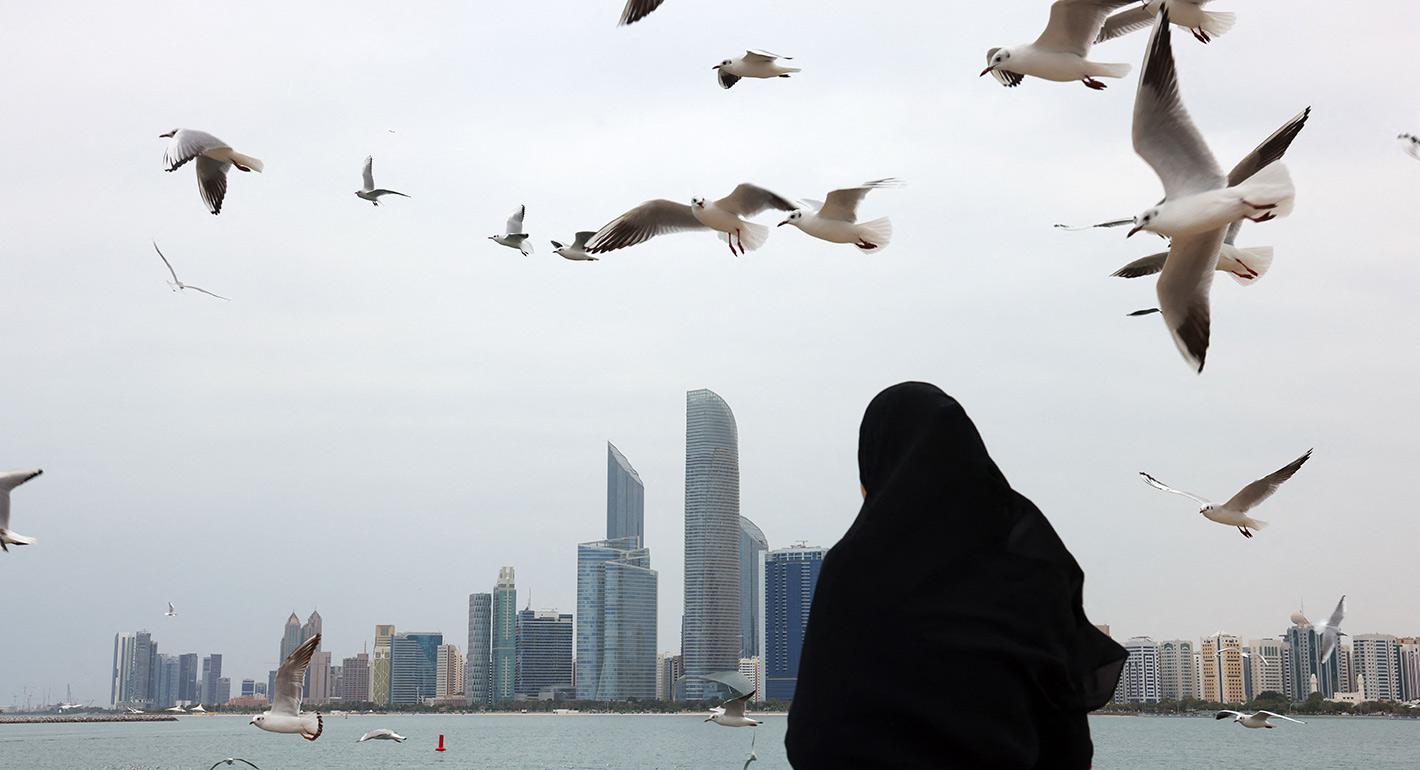At the United Nations Security Council’s annual open debate on Women, Peace and Security in October 2021, the Ambassador and Permanent Representative of the UAE to the UN, Her Excellency Lana Nusseibeh, stated, among other things, that “all actors who design and prepare for peace operations must be compelled to incorporate a range of perspectives, including from local women.” But when we speak of women in peace and security in the context of the Gulf region, we speak of optics and the competing lenses through which gender roles are perceived by different actors in society. Seldom do we ask, though, how Gulf women perceive themselves, and whether they really want to be included in that sector. The reality on the ground, in fact, compels one to ask whether the inclusion of women in security and peace is, as skeptics might suggest, merely a foreign agenda that uses “women’s empowerment” for state—rather than individual—capacity-building.
In 2014, Major Mariam Al Mansouri, who had participated in airstrikes against the Islamic State in Syria, made headlines as the first female fighter pilot in the UAE and the Gulf region. Major Al Mansouri received widespread international attention for her combat role for which she was also dubbed “Lady Liberty.” Big media names such as CNN, BBC, the New York Times, and the Guardian all ran profile features on Al Mansouri. Domestically, however, and particularly outside of military circles, the reception to Major Al Mansouri was relatively lukewarm. In fact, the overwhelming and informal impulse was to detractively wonder about her maternal background, which momentarily progressed to unsavory attempts to negate her membership in the Manaseer tribe.
Although kinship in the Gulf region is patrilineal, the maternal side plays a significant role in determining degrees of distance and belonging, creating a category of “inside-outsider” by which socially unconventional practices are conveniently explained. There are racial signifiers and undertones that are woven into the rhetoric of society to deter women from breaking from traditional gender roles. By upholding traditional gender roles, families aim to protect not only their good standing in society, but also the propriety and modesty of their womenfolk.
For a long time, the military was perceived to be a field reserved for the academically under-performing and inept. School dropouts were customarily absorbed into the military, which served as a pathway towards productive citizenship. The same perception of the security sector holds largely true today, but mainly for women. Recently, the military has been able to successfully attract a substantial number of high-achieving male college graduates from diverse ethnic backgrounds and emirates. For women, however, the ethnic and racial factors are more prominent, as society perceives women in security as coming not only from economic want, but also from social backgrounds that do not find it degrading or shame-inducing to push women into uniformed professions. While the general aversion to the sight of women in uniforms has observably softened, especially with female members of the ruling elites actively participating in and promoting the security sector, the challenge to appeal to the large population of highly educated women remains.
To address these deeply ingrained social norms, the UAE took to propping up women from different ethnic backgrounds. As we celebrated the UAE’s presidency month at the UN Security Council last year, with a delegation headed by an Emirati woman, it is important to highlight how Her Excellency Lana Nusseibeh is perceived domestically, especially by other Emirati women. While Major Al Mansouri was, at first, perceived as an inside-outsider, Nusseibeh, in her suited appearance and audibly non-Khaleeji accent, is perceived as an outside-outsider—someone whose peripheral inclusion is often likened to the naturalization of football players, who are meant to help the national team qualify in global championships.
This perception of belonging and purity is central to how women navigate societal expectations and norms in the Gulf. Society at large and its many institutions were particularly securitized following the Arab uprisings. Just like the UAE and other Gulf states introduced military conscription for men (which remains voluntary for women), they have also introduced a form of civic conscription through public discourse. Women are taught that there are many forms of security, one being cultural security, of which they are at the vanguard. The public outrage expressed over a video that went viral last year on the occasion of Emirati Women’s Day was notably an instance wherein Emirati women were called upon to take legal action against a group of their compatriots who had supposedly misrepresented the essence of being an Emirati woman.
The demarcation between feminine-appropriate security roles, such as those of ambassadors and other members of the diplomatic corps, and ones that are masculine in their uniformed appearances and functions, is entrenched in the social imagery, competing against the state’s declared desire to include women in security and peacebuilding. Is it, then, not a conflict between state ambition and societal codes that must first be rectified for women to advance in security and peacebuilding? Then again, do Gulf women, long socialized to project gentility, refinement, and their family’s good standing, even desire that kind of inclusion?
Mira Al Hussein is a post-doctoral researcher at Oxford University whose work focuses on the sociology of higher education in the Gulf. Follow her on Twitter: @miraalhussein.






